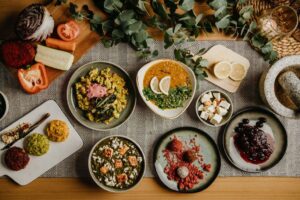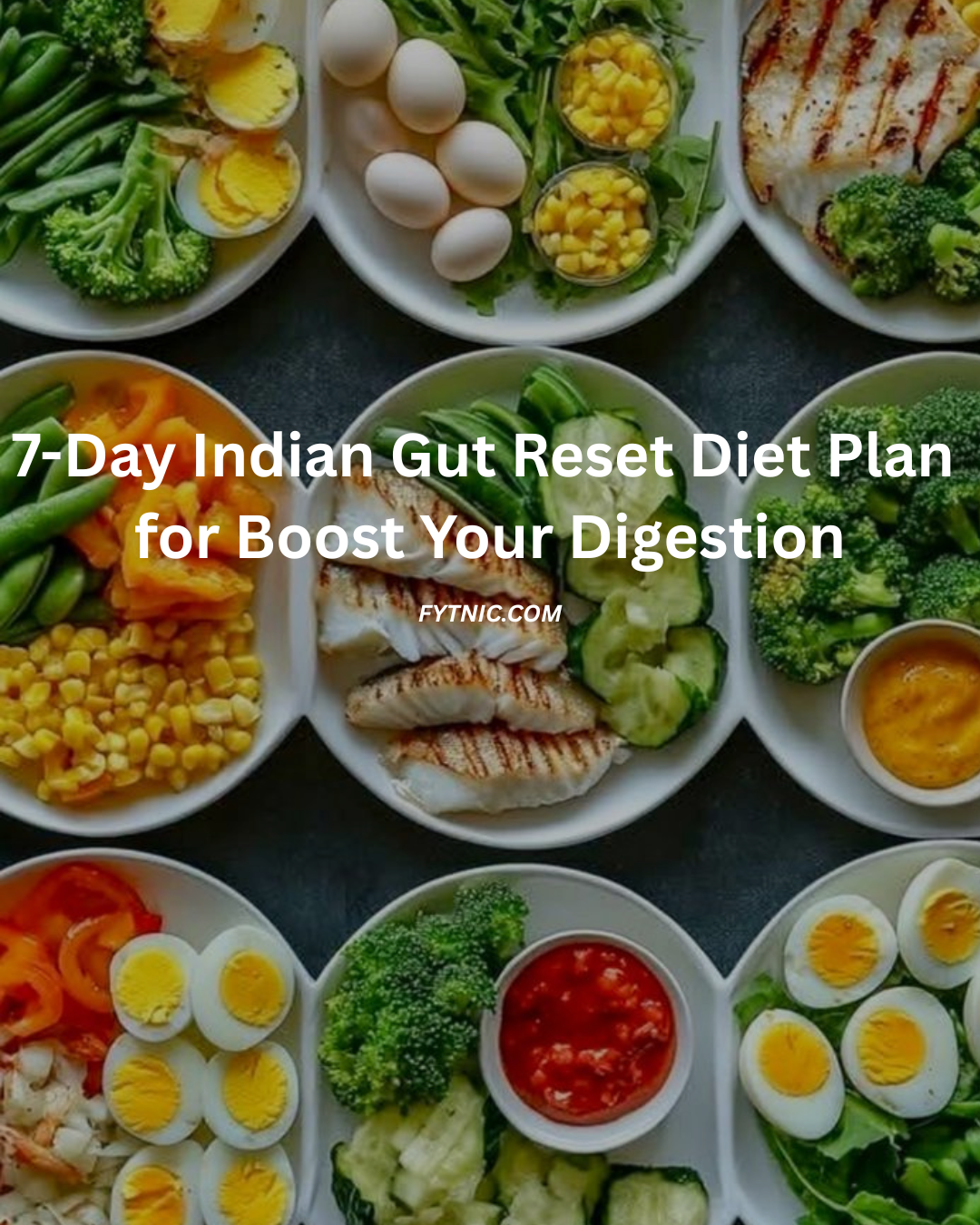Have you ever felt bloated after eating, or experienced constant stomach discomfort that just won’t go away? I know exactly how you feel. A few years ago, I was struggling with the same issues – feeling tired all the time, dealing with an upset stomach, and wondering why my favorite foods suddenly didn’t agree with me.
Also Read: 6 Fermented Foods That Destroy Modern Probiotics
Why Your Gut Health Matters
Your gut isn’t just responsible for digesting food. It’s connected to almost everything in your body – from your immune system to your mood and energy levels. When your gut is unhappy, you feel it everywhere.
Many of us living modern Indian lifestyles face common gut problems:
- Bloating after meals
- Irregular bowel movements
- Constant acidity or heartburn
- Low energy through the day
- Skin issues like acne or rashes
- Food sensitivities that seem to get worse
Sound familiar? You’re not alone. According to recent studies, over 60% of Indians report some form of digestive discomfort regularly. Our fast-paced lives, processed foods, and stress levels all take a toll on our gut health.
The Indian Approach to Gut Health

What makes an Ayurvedic gut healing diet special is how it combines modern nutritional science with ancient wisdom that’s been practiced in India for thousands of years.
In Ayurveda, good digestion (or “Agni”) is the foundation of health. When your digestive fire is strong, you can properly absorb nutrients and eliminate toxins. When it’s weak, toxins (called “Ama”) build up, creating the perfect environment for health problems.
Traditional Indian cooking naturally supports gut health through:
- Spices that aid digestion (like ginger, turmeric, and cumin)
- Fermented foods that provide natural probiotics
- Balanced meals that consider your body type
- Mindful eating practices
But many of us have moved away from these traditional eating patterns. We grab quick meals, eat on the go, and choose convenience over nutrition. My own grandmother used to say, “The way you eat is as important as what you eat” – wisdom I only truly understood after fixing my own gut issues.
Before You Start: Preparing for Your 7-Day Gut Reset
This 7-day gut cleanse Indian diet isn’t about starving yourself or drinking strange concoctions. It’s about giving your digestive system a break while nourishing it with healing foods.
Before starting, gather these kitchen staples:
- Fresh vegetables and fruits
- Whole grains like brown rice, millet, and barley
- Lentils and beans
- Yogurt or plant-based yogurt
- Indian spices (especially turmeric, cumin, coriander, fennel)
- Ghee (clarified butter) or coconut oil
- Herbal teas (especially ginger, mint, and fennel)
During this week, try to avoid:
- Processed foods and snacks
- White flour products
- Excess sugar
- Fried foods
- Alcohol
- Caffeine (or limit to one cup daily)
Remember, this is not a strict diet but a healing plan. Listen to your body and adjust as needed. If you have any medical conditions, please consult your doctor before starting.
Your 7-Day Indian Gut Reset Plan
Day 1: Gentle Detoxification
Morning: Start your day with a glass of warm water with lemon and a pinch of turmeric. This simple drink wakes up your digestive system and helps flush out toxins.
Breakfast: Moong dal porridge (khichdi) cooked with a piece of ginger and cumin. Light and easy to digest, this meal gives your gut a gentle start.

Lunch: Steamed vegetables with a small portion of brown rice, seasoned with digestive spices like cumin and coriander.
Evening snack: A small cup of buttermilk (chaas) with roasted cumin and rock salt.
Dinner: Clear vegetable soup with healing herbs. Keep dinner light to allow your body to focus on repair while you sleep.
Tip for Day 1: Drink plenty of water throughout the day. Try to have your last meal at least 3 hours before bedtime.
Day 2: Introducing Healing Foods
Morning: Start with warm water with a slice of ginger to stimulate digestion.
Breakfast: Ragi porridge cooked with a little jaggery and ghee. Ragi (finger millet) is excellent for gut health and provides sustaining energy.
Lunch: Khichdi made with rice and yellow moong dal, cooked with turmeric, cumin, and a touch of ghee. Add steamed carrots and zucchini on the side.
Evening snack: A small bowl of homemade yogurt with a sprinkle of roasted cumin powder.
Dinner: Pumpkin soup seasoned with ginger and black pepper.
Tip for Day 2: Practice eating without distractions. Put away your phone and turn off the TV. Notice the flavors and textures of your food.
Day 3: Introducing Probiotics
Morning: Warm water with a teaspoon of apple cider vinegar (optional: add a little honey).
Breakfast: Overnight soaked poha with grated carrots, peanuts, and a squeeze of lemon.
Lunch: Brown rice with a small serving of rajma (kidney beans) curry made with digestive spices. Add a side of steamed greens.
Evening snack: A small glass of homemade lassi with a pinch of cardamom.
Dinner: Mixed vegetable soup with barley.
Tip for Day 3: Try to include fermented foods today, which are natural probiotics. Traditional Indian probiotic foods include idli, dosa, dhokla, kanji, and homemade pickles.
Day 4: Fiber Focus
Morning: Start with triphala water (if available) or warm lemon water.
Breakfast: Oats porridge cooked with cinnamon, topped with sliced banana and a teaspoon of flaxseeds.
Lunch: Multigrain roti with a small serving of mixed vegetable sabzi and dal.
Evening snack: A handful of roasted chana (chickpeas) with a sprinkle of black salt.
Dinner: Vegetable khichdi made with brown rice and mixed lentils.
Tip for Day 4: Focus on fiber-rich foods today. Fiber acts like a brush for your digestive tract and feeds beneficial gut bacteria.
Day 5: Healing Spices Day
Morning: Sip on warm water infused with fennel seeds and a small piece of jaggery.
Breakfast: Suji upma made with plenty of vegetables and curry leaves.

Lunch: Simple dal with jeera rice and a side of cucumber raita.
Evening snack: A small bowl of roasted makhana (fox nuts) seasoned with black pepper and rock salt.
Dinner: Light moong dal soup with a squeeze of lemon.
Tip for Day 5: Today, focus on including gut-friendly Indian spices in every meal. Spices like turmeric, cumin, coriander, fennel, and ginger are powerful digestive aids and anti-inflammatories.
Day 6: Gut-Brain Connection
Morning: Start with a cup of ginger-turmeric tea with a touch of honey.
Breakfast: Vegetable uttapam with coconut chutney.
Lunch: Quinoa pulao with mixed vegetables and a side of cucumber-tomato salad.
Evening snack: A small handful of mixed nuts and seeds.
Dinner: Clear soup with vegetables and a small portion of broken wheat khichdi.
Tip for Day 6: Practice mindful eating today. Did you know your brain and gut constantly communicate? Stress impacts digestion, so take a few deep breaths before each meal.
Day 7: Integration & Balance
Morning: Start with warm water with a squeeze of lemon and a pinch of cinnamon.
Breakfast: Millet dosa with a small portion of sambhar.
Lunch: Balanced thali with a small portion of rice, one roti, dal, vegetable curry, and a side salad.
Evening snack: Fruit chaat seasoned with chaat masala.
Dinner: Light vegetable pulao with raita.
Tip for Day 7: Today is about finding balance. Notice how different your body feels after a week of gentle, mindful eating.
Superstar Indian Foods for Gut Health

These powerful ingredients should become regulars in your kitchen for maintaining gut health beyond this 7-day plan:
- Turmeric: Contains curcumin, which reduces inflammation in the gut lining
- Ghee: Provides butyric acid that nourishes colon cells
- Yogurt: Natural probiotic that introduces beneficial bacteria
- Buttermilk (Chaas): Soothes the digestive tract and provides probiotics
- Cumin: Stimulates enzyme production for better digestion
- Fennel seeds (Saunf): Relieves bloating and acts as a digestive aid
- Ginger: Reduces nausea and helps food move through the digestive tract
- Ajwain (Carom seeds): Excellent for relieving gas and indigestion
- Amla (Indian gooseberry): High in vitamin C and supports liver function
- Curry leaves: Aid digestion and are rich in antioxidants
Beyond Food: Supporting Your Gut Reset
Food is just one piece of the puzzle. These practices enhance the benefits of your Indian digestive reset plan:
Proper Water Timing: In Ayurveda, when you drink water matters. Try not to drink large amounts during meals (small sips are fine). Instead, drink 30 minutes before or after eating.
Yoga for Digestion: Simple poses like Pawanmuktasana (Wind-Relieving Pose), Vajrasana (Thunderbolt Pose), and gentle twists can improve digestion. Try sitting in Vajrasana for just 5-10 minutes after meals.
Oil Pulling: This traditional practice of swishing coconut or sesame oil in your mouth for 5-10 minutes can reduce harmful bacteria.
Regular Meal Times: Our bodies love routine. Try to eat your meals at the same time each day to support your natural digestive rhythm.
After the Reset: Maintaining Your Gut Health
As you complete this week, you might notice:
- Less bloating
- More regular bowel movements
- Better energy levels
- Clearer skin
- Fewer food sensitivities
- Better sleep
But this is just the beginning! The real challenge is maintaining these benefits. Here’s how:
- Gradual Reintroduction: Slowly bring back foods you removed, one at a time, noticing how your body responds.
- 80/20 Rule: Aim to follow gut-friendly practices 80% of the time, allowing flexibility for special occasions.
- Regular Check-ins: Take a minute each day to notice how your gut feels. This awareness helps you catch problems early.
- Seasonal Resets: Consider doing a 3-day simplified version of this reset with each change of season, as recommended in Ayurveda.
My Personal Journey to Better Gut Health
When I first started having digestive problems, I tried everything from eliminating food groups to expensive supplements. Nothing worked until I went back to basics – the simple, balanced meals my grandmother used to make.
I remember her always saying, “Your stomach should be filled with one-third food, one-third water, and one-third should be left empty.” This ancient wisdom from our Ayurvedic digestive herbs tradition made so much sense when I finally paid attention.
Within just one week of following a simple anti-inflammatory Indian diet similar to the one I’ve shared with you, I noticed significant improvements. My bloating reduced, my energy returned, and I stopped dreading mealtimes and more focus on indian diet plan.
Your Gut Health Journey Starts Now
Remember, this reset isn’t about perfection. It’s about progress and discovering what works for your unique body. Some days will be easier than others, and that’s completely normal.
The beauty of this Indian gut reset diet plan is that it doesn’t require exotic ingredients or complicated recipes. It uses familiar foods prepared in gut-friendly ways.
Your body has an amazing ability to heal when given the right tools. By following this 7-day plan, you’re not just addressing symptoms – you’re addressing the root cause of many health issues.
I’d love to hear about your experience with this reset. Which foods made you feel best? What changes did you notice? Share your journey in the comments below.
Here’s to happy, healthy guts and the vibrant health that comes with them!
Note: While this plan is safe for most people, please consult with your healthcare provider before starting, especially if you have existing health conditions or are taking medications.
